Water Calligraphy Device by Nicholas Hanna
Beijing Design Week 2011: a tricycle modified by Canadian artist Nicholas Hanna mimics the Chinese custom of writing temporary messages on the road with water.
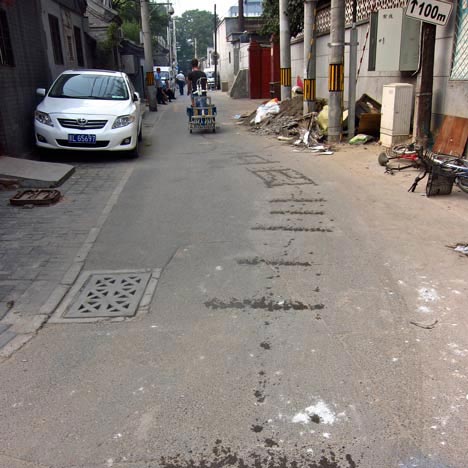
A computer strapped to the handlebars of the Water Calligraphy Device allows the rider to type the Chinese characters they wish to spell out.
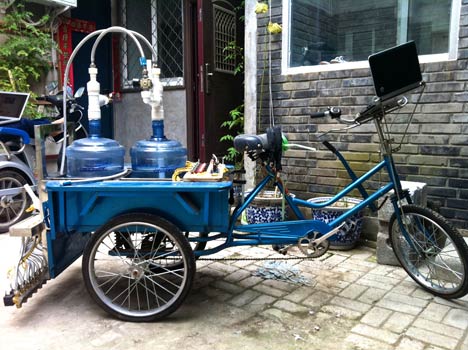
These characters are transmitted electronically to a set of valves, which release water droplets in programmed patterns as the trike moves forward.
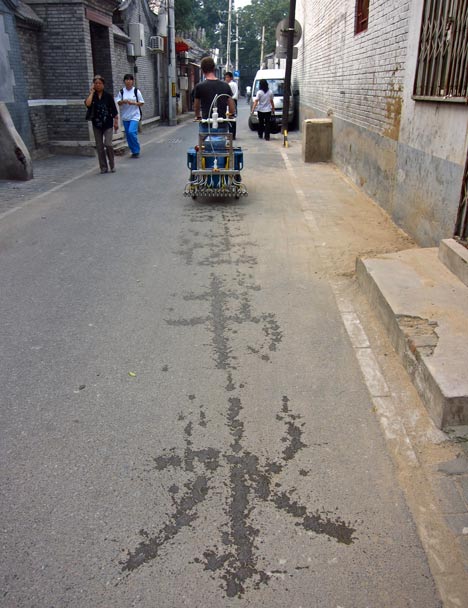
Two large containers positioned at the back of the device store the water.
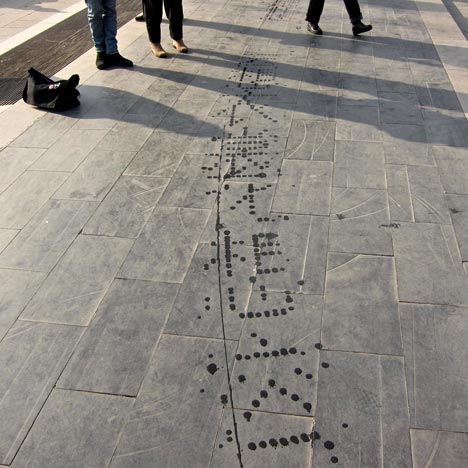
The project was inspired by water calligraphy practiced in parks around China, where passages of poetry are spelled out on the ground for onlookers.
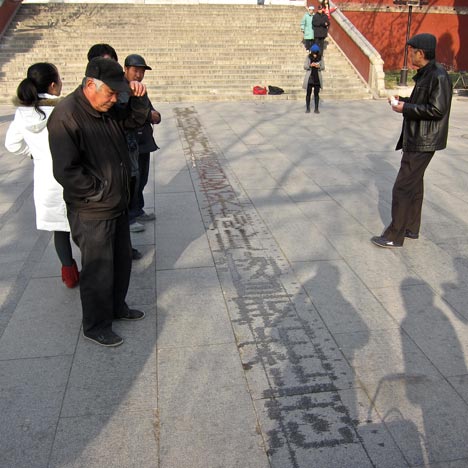
Hanna unveiled the tricycle for Beijing Design Week, which begins on 28 September and finishes on 3 October.
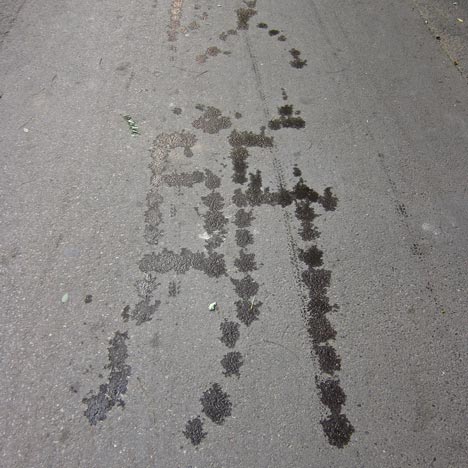
Another water-carrying tricycle was designed by Bill Moggridge, whose cycle purifies the liquid instead of releasing it - see the project here.
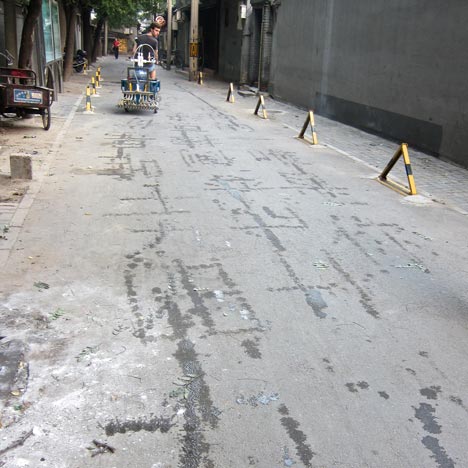
Here is some more information about the Water Calligraphy Device from the festival organisers:
Water Calligraphy Device - an ubiquitous form of transportation on show at Beijing Design Week
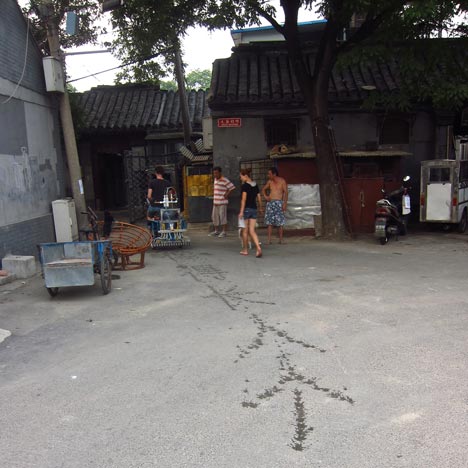
For Beijing Design Week, Canadian Media Artist Nicholas Hanna brings a fun and innovative transports means to Beijing. The Water Calligraphy Device (水!法器) is inspired by the Chinese custom of writing calligraphy in public spaces with a water brush as a contemplative and poetic act. Calligraphers writing passages of poetry, surrounded by a group of onlookers, are a lovely presence in Beijing parks.
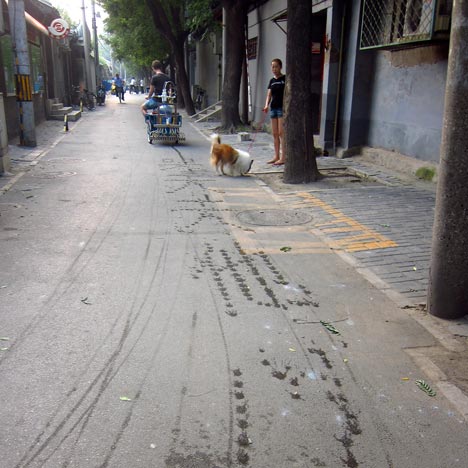
The Water Calligraphy Device combines the inherent beauty of an ancient form of writing, a refined public art practice with the mystery and magic of mechanisms.
The device is mounted on a flat-bead tricycle (三!") which is a ubiquitous form of transportation in Beijing. Passages of Chinese characters are input to a computer. Custom software on the computer processes the characters and transmits them to an electrical system that actuates an array of solenoid valves. The valves release droplets of water on the ground as the tricycle moves forward, thus forming Chinese characters that slowly pool together and eventually evaporate entirely.